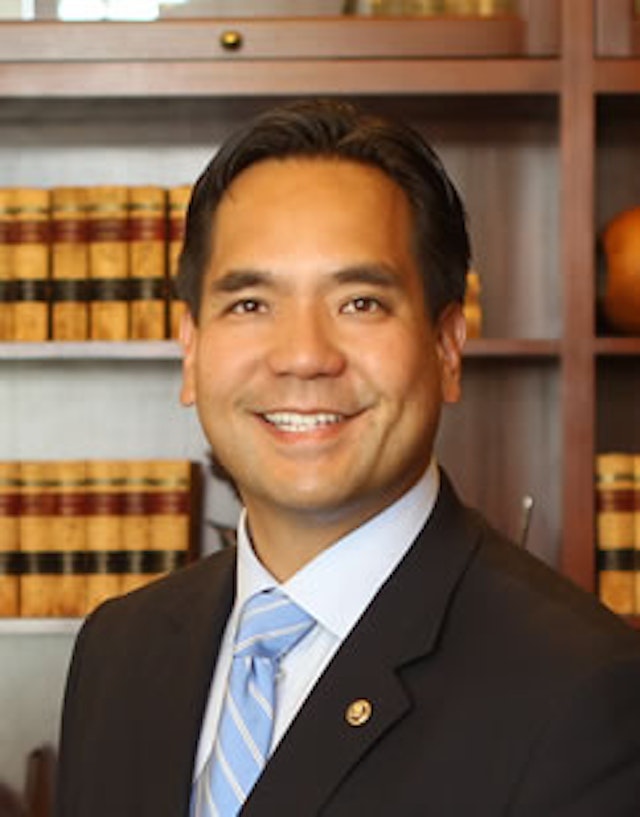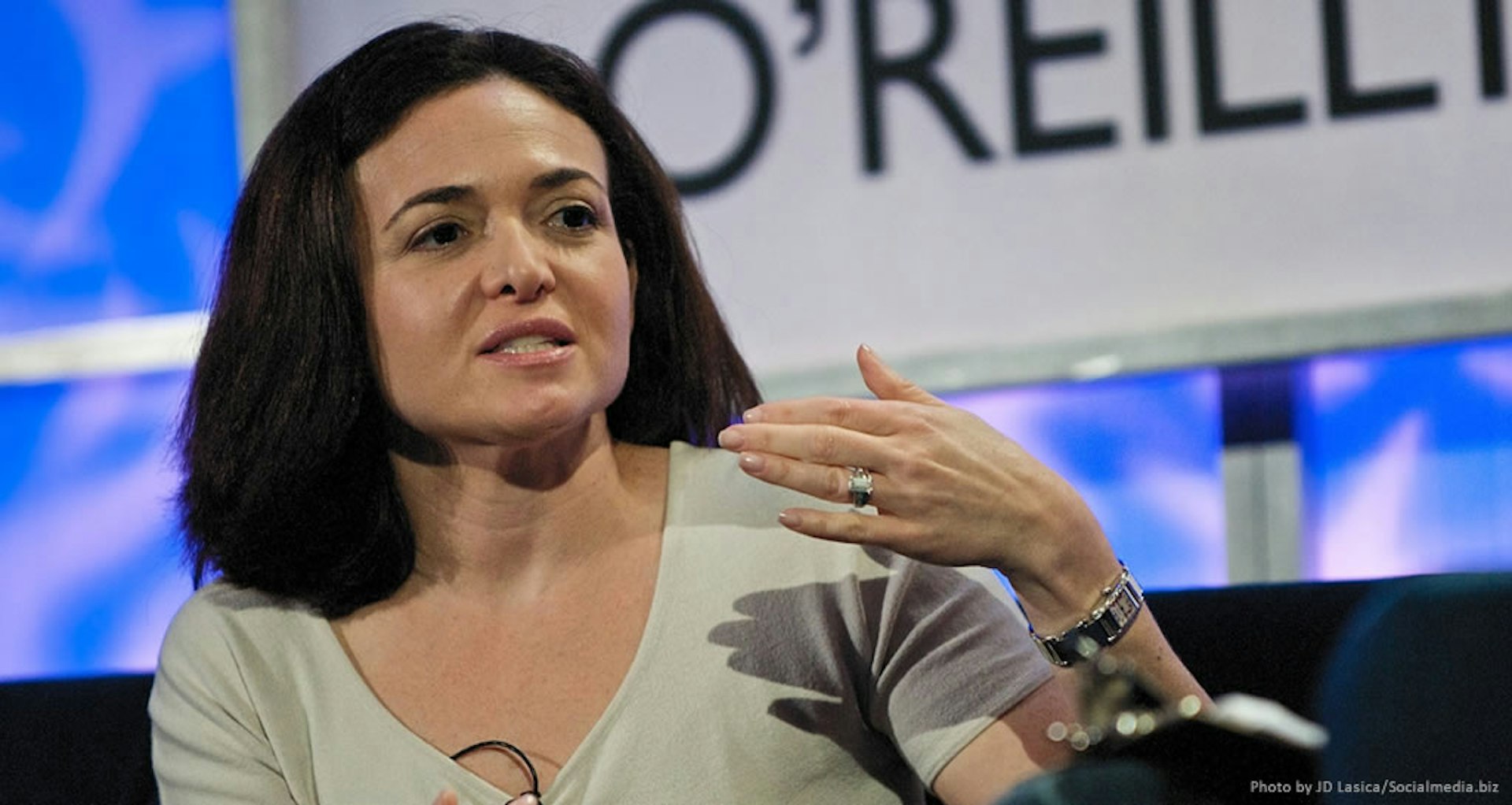Facebook has spent years quietly cultivating state attorneys general across the country, developing relationships with officials who are now playing a prominent role investigating the social media giant, according to a Tech Transparency Project (TTP) investigation.
TTP examined hundreds of emails obtained under state open records laws that detail communications between Facebook and state AGs from both parties. The messages reveal an extensive Facebook effort to influence the attorneys general, by inviting them to confidential meetings with Chief Operating Officer Sheryl Sandberg, providing free advertising credits, and filming public service announcements for them in the library of a Ritz-Carlton hotel.
The under-the-radar influence campaign highlights the social media giant’s efforts to sway officials at every level of government. It may also reflect Facebook’s concern about growing state-level scrutiny, as both Democratic and Republican attorneys general show increasing interest in Facebook’s business practices, including its handling of user data and impact on industry competition.

New York Attorney General Letitia James
That scrutiny has intensified with a sprawling, multi-state antitrust investigation announced in September 2019. New York Attorney General Letitia James (D) is leading a bipartisan group of 47 attorneys general in probing Facebook, including whether company’s actions “endangered consumer data, reduced the quality of consumers’ choices, or increased the price of advertising.”
Facebook may now seek to draw on its network of relationships with attorneys general as it tries to fend off legal challenges by the states.
For years, Facebook has enjoyed high-level access to a number of state AGs and their staffers. For example, the company sought changes to privacy legislation in Vermont with the help of that state’s attorney general, and it tapped Georgia’s attorney general in its pitch for a data center in the state, the communications show.
‘REALLY COOL TECHNOLOGIES’
Facebook has contributed to the campaigns of both Democratic and Republican attorneys general and supported the groups that electioneer on their behalf, the Democratic Attorneys General Association (DAGA) and Republican Attorneys General Association (RAGA), according to public records.
The company gave at least $222,780 directly to attorney general campaigns between 2011 and 2020, according to data compiled by FollowTheMoney.org. DAGA and RAGA have together received at least $675,720 in donations from Facebook since 2009, the latest contribution data from the Center for Responsive Politics show. IRS filings indicate Facebook gave an additional $65,350 to RAGA in 2019 and $50,000 to DAGA in 2020.
But campaign contributions are just one part of the picture when it comes to Facebook’s efforts to cultivate state officials. As TTP’s review shows, the company has used a variety of other strategies to develop direct relationships with attorneys general.
One favored Facebook tactic has been to establish a presence at conferences hosted by the National Association of Attorneys General (NAAG).
NAAG is an organization that supports training and education for the country’s attorneys general from both parties, and its conferences are not overtly political venues. But Facebook has nonetheless used the events to get its message across to AGs on sensitive political topics, the communications show.
One such issue was sex trafficking. In May 2017, Will Castleberry, Facebook’s vice president of state and local policy, told multiple state AGs in an email about Facebook’s partnership with an organization called Thorn, founded by actors Demi Moore and Ashton Kutcher to combat online child sexual abuse and trafficking.
Castleberry offered state AGs an opportunity to meet with Thorn representatives at an upcoming NAAG conference in Big Sky, Montana in June or at a meeting of the Conference of Western Attorneys General in San Francisco later that summer.
The timing was likely not coincidental. Congress at the time was preparing legislation to combat online sex trafficking by modifying a critical legal immunity provision enjoyed by major internet companies like Facebook. Under the measures, Facebook could be sued for turning a blind eye to sex trafficking on its platform—potentially opening the door to a flood of litigation.
A number of attorneys general evidently took part in the Facebook-hosted meeting with representatives from Thorn. About a month after the Big Sky conference, in July 2017, Castleberry thanked AGs “who took time to meet with Thorn,” adding, “The response to the meeting has been really positive – I am so glad it was a good use of your time.”
FILMING AT THE RITZ
Facebook’s efforts to ingratiate itself with attorneys general on the trafficking issue continued into 2018.
Montana Attorney General Tim Fox (R), in a February 2018 letter co-signed by the AGs of Massachusetts, Utah and Oregon, urged his colleagues to take part in a public service announcement being filmed by Facebook at the upcoming NAAG conference at the Ritz-Carlton hotel in Washington, D.C.
A series of emails between aides for Georgia Attorney General Chris Carr (R) and Facebook show how the process worked. Facebook sent a script to the attorneys general and offered AGs or their staff an opportunity to make changes. Attorneys general were slotted for times in the library of the Ritz-Carlton to film the PSA, and Facebook provided a script and loaded the teleprompter.
By that time, the sex trafficking bill was advancing through Congress with bipartisan support, and Facebook had begun to reverse its opposition to the legislation. The final measure, which was signed by President Donald Trump in April 2018, gave state attorneys general enhanced power to go after websites that facilitate sex trafficking.
‘CONFIDENTIAL’ MEETING
Facebook also sought to do damage control with state attorneys general over the Cambridge Analytica scandal, which burst into public view in March 2018 amid reports that the Trump-linked political data firm had improperly obtained information on millions of Facebook users.
The controversy drew immediate attention from federal regulators as well as more than three dozen state AGs, who wrote to Facebook that they were “profoundly concerned” about the revelations and demanded answers from the company about its privacy controls for user data and outside developers, among other things.

Facebook did damage control with state AGs over the Cambridge Analytica data scandal in 2018.
The email communications show Facebook’s crisis response in action. In June 2018, NAAG’s deputy executive director sent out a message on Facebook’s behalf to attorneys general on the Internet Safety/Cyber Privacy and Security Committee, telling them to expect a meeting with Facebook executives Sheryl Sandberg and Nikhil Shanbhag at an upcoming NAAG conference in Portland, Oregon.
Four days later, Castleberry, the state public policy executive who was a frequent point of contact with attorneys general, blasted an email to AGs with more information about a closed-door meeting. Sandberg, Facebook Chief Privacy Officer Erin Egan and the company’s then-general counsel, Colin Stretch, would “discuss privacy issues facing our industry.” That would be followed by an “in-depth meeting about the specifics of CA,” an apparent reference to Cambridge Analytica.
Meanwhile, Castleberry offered Utah Attorney General Reyes an individual meeting with Sandberg in ballroom lobby of the Portland hotel hosting the conference. Reyes’ scheduler gladly accepted, saying the AG would “love a one-on-one appointment with Sheryl.”
Sandberg evidently met with other AGs at the event as well.
“We were grateful for the opportunity to discuss the issues that matter so much to all of us – from data and privacy, to perceived bias, to content on our platform,” she wrote to then-Wyoming Attorney General Peter Michael (R) after the NAAG conference. “It is incredibly important to Facebook and to the tech industry that we get these issues right.”
Facebook’s efforts didn’t succeed in tamping down all AG action on the issue. Massachusetts Attorney General Maura Healy (D) opened an investigation of Facebook in March 2018, and Karl Racine (D), the AG of the District of Columbia, later that year filed a lawsuit against the company, which is proceeding in court. Xavier Becerra (D), attorney general of Facebook’s home state of California, has also been investigating the Cambridge Analytica scandal, among other Facebook privacy issues.
At the federal level, regulators hit Facebook with a $5 billion fine for mishandling of user data, following a lengthy probe sparked by the Cambridge Analytica controversy. Despite the historic size of the penalty, however, many critics called it a slap on the wrist, given that it represents just a fraction of Facebook’s revenue in a typical quarter.
VIP SPONSORSHIP
Facebook has offered a variety of perks to state attorneys general as part of its influence campaign.
In mid-2017, Facebook was in contact with Utah Attorney General Reyes, a rising Republican star who’d been mentioned as a candidate to lead the Federal Trade Commission in the new Trump administration.
In one exchange, Castleberry introduced Reyes to two organizations founded by Facebook CEO Mark Zuckerberg—the Chan-Zuckerberg Initiative and advocacy group FWD.us—to discuss criminal justice reform.

Sean Reyes, Attorney General of Utah
“It was great seeing you at the NAAG event and hearing more about your great efforts in criminal justice reform,” Castleberry wrote. “As you mentioned, this is a very important issue to Mark and the teams at CZI and FWD. I am connecting (reconnecting) you with folks there. I know they are excited to talk more about the issues.”
Castleberry also suggested Facebook would be a sponsor for Reyes’ Law Day Symposium that June, communications show.
“[T]hanks again for inviting Facebook to serve as a VIP sponsor for your Law Day Symposium,” he said. “I look forward to hearing the keynote speaker, Yusef Salaam, talk about his amazing story.”
The VIP-level sponsorship included a $5,000 donation to the event, according to a flyer attached to Castleberry’s email. A local newspaper columnist has called the AG’s annual symposium a “cleverly packaged fundraiser for the Reyes campaign.”
CREDITS AND CONNECTIONS
That same year, Facebook provided technical help to Idaho Attorney General Lawrence Wasden’s (R) office for a public service announcement tied to Safer Internet Day, according to emails. Castleberry followed up to remind Wasden’s team they would get a free advertising boost for the PSA.
“Your accounts should be set for another $3000 credit so please follow the same instructions below. Thanks again!” he wrote.
Facebook has previously donated to Reyes and Wasden political campaigns, contributing at least $25,000 to Reyes and $16,000 to Wasden, according to FollowTheMoney.org.
Other emails show Facebook reaching out to Georgia Attorney General Chris Carr for a favor.
In January 2017, Facebook’s Castleberry asked Carr to make introductions to Georgia economic development officials about a potential Facebook data center in the state. He wrote:
After the meeting had been set, Castleberry replied, “Thank you so much! Please let me know the next time you’re in DC so we can get some tech companies together to meet you.”
Facebook contributed $6,300 to Carr’s re-election campaign about six months later, in July, according to FollowTheMoney.org.
The following year, in March 2018, Georgia announced Facebook would be building a $750 million data center in state. Facebook contributed another $6,600 to Carr’s campaign that October.
BEHIND-THE-SCENES LOBBYING
In Vermont, Facebook used its relationship with the state’s attorney general to shape online privacy legislation.
In May 2019, Maggie Lenz, an outside lobbyist for Facebook, asked the office of Vermont AG TJ Donovan (D) and state Rep. Michael Marcotte to delay a key vote on the privacy bill for 24 hours, so industry groups could suggest changes to a provision requiring companies to notify consumers about data breaches. A day later, Donovan’s office sought to confirm that Facebook agreed with the new text, which narrowed the definition of health data that would trigger a breach notification, according to the emails.
“Yes, we are in agreement. Thank you so much to all parties involved,” Lenz wrote.
The legislation eventually passed and was signed by Vermont’s governor in March 2020.
A few months after Facebook lobbied for changes to the privacy legislation, the Vermont AG’s office would encounter a different side of the company.
Assistant AG Ryan Kriger expressed frustration that the company had failed to register as a data broker under a different state law.
Castleberry followed up to state the company’s position, saying “we do not believe we qualify as a data broker under the law.” In a later email he argued that the company doesn’t qualify because it no longer shares non-Facebook user information with advertisers — and even when it did, it only shared user information in “aggregate form.”
A few weeks later, the AG’s office appeared to reverse its position on seeking to force Facebook to register.
“I expect that Facebook will continue to monitor its practices with respect to third party data it possesses … Should Facebook trigger the definition of ‘data broker’ pursuant to Vermont law we would reasonably anticipate compliance with the law by simply making the required filing with the Vermont Secretary of State,” Christopher Curtis, chief of the AG office’s public protection division, wrote to the company.
Further email communication reveals that Kia Floyd, Facebook’s head of public policy for the northeast, had met with Vermont AG Donovan and members of his staff during this period.
“We look forward to working proactively with your office on initiatives that aim to protect Vermonters while encouraging tech industry innovation,” Floyd wrote to Donovan a day after the AG’s office backed off on the data broker issue. “Facebook values our relationship with the AGO and the state of Vermont and we look forward to continuing to work together.”




